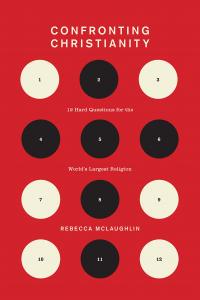 Most readers of this blog live in societies that try (not always successfully) to foster freedom of religion. The governments don’t require any specific set of religious beliefs or practices. All are acceptable in society, Christian, Jew, Muslim, Hindu, Buddhist, Native American, atheist. As a corollary, we also permit freedom of conversion. But is it right (morally and ethically) to persuade others to change their beliefs?
Most readers of this blog live in societies that try (not always successfully) to foster freedom of religion. The governments don’t require any specific set of religious beliefs or practices. All are acceptable in society, Christian, Jew, Muslim, Hindu, Buddhist, Native American, atheist. As a corollary, we also permit freedom of conversion. But is it right (morally and ethically) to persuade others to change their beliefs?
Most Christians will have no qualms answering yes (nor will Muslims). Persuasion, but not coercion. But many others in our secular society will be ambivalent. While they may not answer no, there is a general impression that such persuasion is unnecessary. All religions are equally true, or more accurately equally useful in society. It doesn’t really matter.
How can you say there’s only one true faith?
In the third chapter of her book Confronting Christianity: 12 Hard Questions for the World’s Largest Religion, Rebecca McLauglin looks at truth claims and religion, specifically Christianity. The following points are distilled from among others in her discussion.
First, respect in a pluralistic society requires that we take the beliefs of others seriously. “To say that Christianity and Islam or Islam and Hinduism are just two sides of the same truth coin reduces pluralism to a patronizing posture by which we don’t respect others enough to take their beliefs seriously.” (p. 49) Disagreement is neither disrespectful or unkind. More than that, attempts at persuasion can demonstrate respect. Rebecca concludes that “you are treating them as thinking agents with the ability to decide what they believe, not just products of their cultural environment. We should not be offended when people challenge our beliefs: we should be flattered!” (p. 49)
Second, there is such a thing as truth. Either Christianity is true or it isn’t. It isn’t purely subjective. Rebecca puts it like this: “Physicist Neil deGrasse Tyson famously quipped to Stephen Colbert, “The good thing about science” is that “it’s true whether or not you believe in it.” But this is not limited to science: it’s the good thing about truth. Period.” A consequence of our belief in truth (whether scientific or religious) is that a search for truth and efforts to persuade others of that truth are appropriate.
Third, there are ethical consequences. Either men and women are equally valuable or they aren’t. Either racism is wrong or it isn’t. Either sexual harassment is wrong or it isn’t. Either children deserve protection as individuals or they are possessions of their parents. Our deepest ethical beliefs are worth defending and promoting. Of course, we may find ourselves persuaded by others on some of these issues if we engage in honest discussion. However, none of us really believe that all views are equally valid.
As Christians we believe that there is one God, creator of heaven and earth. We believe that Jesus actually lived and died in the first century and that he was raised from death to life. The resurrection is the central truth claim of Christianity. This is not compatible with the idea that all religions are true – or can be true for you, even if not for me.
Jesus claims rule over all of heaven and earth. He presents himself not as one possible path to God, but as God himself. We may choose to disbelieve him. But he cannot be one truth among many. He has not left us that option. (p. 58)
Attempts at persuasion (but not coercion) flow naturally from honest conviction of truth.
If you wish to contact me directly you may do so at rjs4mail[at]att.net
If interested you can subscribe to a full text feed of my posts at Musings on Science and Theology.















